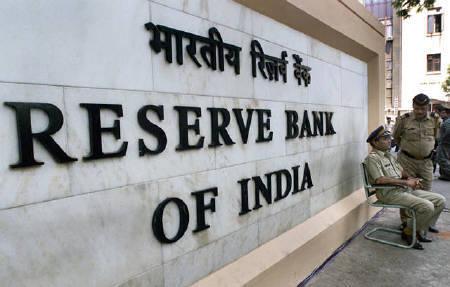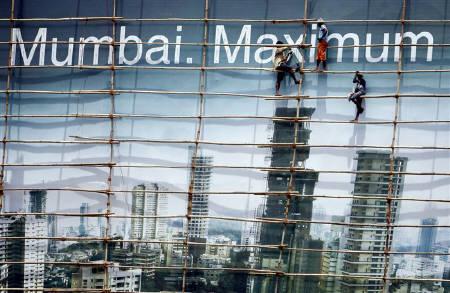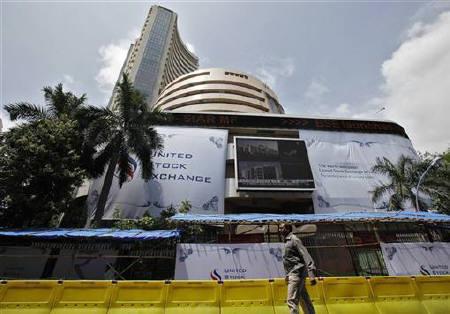Photographs: Reuters
This Tuesday saw an upbeat in the money market resulting from the positive move from RBI monetary policy of reducing the CRR rate by 0.5 per cent.
The revised CRR now stand at 5.5 per cent, which was earlier six per cent, which would be effective from January 28, 2012.
The CRR reduction was targeted to control the inflation .This news also saw the rupee strengthen against the dollar. The share market too rose to a 10 week high. What does this mean for the banks, economy and to the common man?
CRR Refers to the Cash Reserve Ratio that the banks have to maintain with the RBI.
...
What does RBI's move to cut CRR rate mean? Find out...
Image: Air India was waiting for a favourable nod.Photographs: Reuters
It is the minimum reserve that each bank must hold with the central bank out of customer deposits. A cut in CRR would definitely be advantageous to the banks as they would have more funds to lend/invest for profit generation.
RBI also foresees a threat in the form of increase in bad debts/non-performing assets due to this move. To mitigate this risk, the RBI is planning to have a meeting with top 10 banks of India to discuss this further.
Air India, our debt ridden carrier, was waiting for a favourable nod from the RBI for their debt restructuring and finally RBI is ready to treat it as non-performing asset.
...
What does RBI's move to cut CRR rate mean? Find out...
Image: RBI's move will curb inflation.Photographs: Reuters
Once an asset is classified as a non-performing one, banks are required to set aside 70 per cent of the amount.
Air India currently has a debt amounting to Rs 43,777 crore (Rs 437.77 billion).
A positive move as this one would certainly be beneficial for the Indian economy. The major benefit being a curb on inflation by giving a liquidity push. Till now RBI had been resorting to OMO or open market operation whereby it has bought back Rs 70,000 crore (Rs 700 billion) worth of government securities from the market in the recent past.
As of now inflation is projected to seven per cent by March end.
...
What does RBI's move to cut CRR rate mean? Find out...
Image: The move will also help soften the interest rates.Photographs: Reuters
The CRR cut has facilitated an injection of Rs 32,000 crore (Rs 320 billion) into the economy, which will soften the interest rates considerably.
The RBI lowered its GDP growth forecast for the fiscal year that ends in March to seven per cent from 7.6 per cent, and left its wholesale price index inflation target unchanged at seven per cent for the end of the fiscal year in March.
However the RBI opted to keep the repo rate (repurchase rate or short-term lending rate), at which it lends to the banks, unchanged at 8.5 per cent, keeping in mind the downtrend in global economy as well as slowdown in domestic economy.
Reverse repo (rate at which the RBI borrows from banks) is also kept at 7.5 per cent.
...
What does RBI's move to cut CRR rate mean? Find out...
Image: There is no immediate relief from the EMIs.Photographs: Reuters
Banks will have more money in their hands to lend to common man. There is no current change in interest rates but still one can hope for lower rates in future.
There is no immediate relief from the EMIs for the home and auto loan borrowers but rate reduction is definitely on the cards.
Banks will have reduced the cost of funds thereby ensuring fair amount of money for growth options. Price pressures and inflationary pressures remain, but positive hopes remain that it will certainly ease down during the next fiscal year which starts in April.
Share markets rallied on January 24 as a result of the CRR cut.
...
What does RBI's move to cut CRR rate mean? Find out...
Image: Interest rate cut is a few months away.Photographs: Reuters
The sensex touched the 17,000 mark and closed at 16,995 and Nifty crossed 5,100 to close at 5127. All major banks performed well in the sharemarket. This was a result of an introduction of Rs 32,000 crore (Rs 320 billion) into the system.
RBI considers a cut in CRR as just a liquidity measure taken to control inflationary pressures. And, according to RBI, interest rate cut is again a few months away. International Monetary Fund or the IMF has cut India's growth rate for 2013 from 8.1 per cent to 7.3 per cent.
It has also warned that India should be more cautious in its policy easing measures. It is definitely a tough balancing act for the RBI between maintaining economic growth and controlling inflation.







article